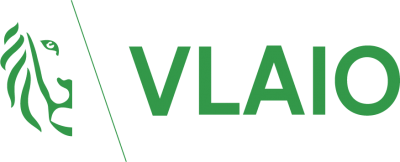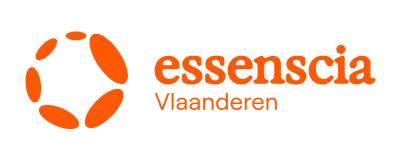Topics
We organise our actions in six thematic & strategic agendas:
Strategic Agendas:
Bio-economy
Circular Construction
Chemicals/Plastics
Manufacturing Industry
Food Chain
Water Cycles
Seven leverages provide additional support:
Leverage effects:
Lever Policy Instruments
Lever Circular Procurement
Lever Communication
Lever Innovation & Entrepreneurship
Lever Financing
Lever Jobs & Skills
Lever Research
What, why and how?
Why are we pursuing a circular economy?
Future visions 2050
How do we see our circular future?
About our management
Who steers what at Flanders Circular?
Stroom
Living labs test support for circular making, sharing and using
If we want to switch to a more circular economy, it is crucial as a city to maximize the support for circular thinking among our citizens. Therefore, the City of Mechelen wants to start an awareness and action campaign called Stroom. The goal is to eventually have all Mechelen citizens, even those who are not immediately climate active or who are awake to sustainability, consider the sharing and repair of materials as the norm.
In preparation for that campaign, we launched a neighborhood survey in the Bethaniënpolder-Auwegemvaart neighborhood. The inhabitants of that neighborhood have a very diverse socio-economic and cultural background, and are the ideal reflection of the population of Mechelen.
We used a whole range of methods to reach as many people as possible, especially those who do not actively participate in a participation project. For example, in collaboration with community work, the school and social organizations from the neighbourhood, we organized workshops tailored to different target groups (young people, mothers with non-Flemish origin, etc.). Home visits, an online survey, diary studies and festive activities also made connections and allowed us to immerse ourselves in the social fabric of the neighborhood.
In the research, we avoided as much difficult jargon around circularity as possible, but simply asked people how they wanted to make their daily lives easier, and their neighborhood more enjoyable. We documented residents' desires and needs across several themes: energy, water, clothing, food, housing, mobility, leisure, material consumption and waste.
Thanks to this research, we discovered that the majority of Mechelaars actually already desire more local food production, less food waste, and more recovery and sharing initiatives.
Stad Mechelen
Partners Studio Dott
Sectors
Themes
Organisations
MOST IMPORTANT
RESULTS
- A group of volunteers from the neighborhood of the study took the reins themselves to start a neighborhood vegetable garden, the Alfa Garden.
- Two pilot projects were established around the sharing of cargo bikes and tools, in collaboration with Fietsatelier Mechelen (Ecoso vzw), the start-up Cargoroo, the Klusbib (Deelbaar Mechelen vzw) and the Ecokoeriers.
- A Mechelen Bruist city map was made for Mechelen residents and tourists, on which all already existing circular initiatives in the hospitality and trade sectors can be found. Many were not yet known to the local residents.
- At the request of a number of residents, a circular market was organized. This initiative is now being continued by the creative community of Marktenova.
MOST IMPORTANT
LESSONS LEARNED
- The majority of residents already desire more local food production, less food waste, and more recovery and sharing initiatives. Thus, there is already a fairly large base of support for circular thinking.
- Mechelaars are willing to use products rather than buy them if an easily accessible, affordable, and insured system is available. This is certainly the case for expensive items (e.g., cargo bikes or specific work equipment), or things that are only used for a limited time (e.g., baby and children's gear).
- Residents prefer some kind of library system to sharing among themselves, except within intimate circles, because then the responsibility falls to a third, insured party.
- Clothing libraries and giving up an individual car are still a step too far for many, as these items are considered very personal or defining of individual freedom.
WHAT DOES
THE FUTURE HOLD?
Mechelen would like to conduct further research on how to lower the current barriers to more circular thinking given up by residents. It is important to be able to adapt the consumption behavior of the critical mass.
This neighborhood research already forms a solid basis for the design of our action plan on citizen involvement in the transition to a more circular economy. We will tackle this transition together with the people of Mechelen and the many existing circular citizens' initiatives.
The lessons learned from the project will now be taken up and disseminated in the CECI project (Circular Economy Citizen Involvement), thanks to European funding from Interreg Europe.

















